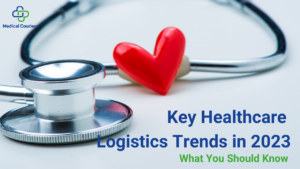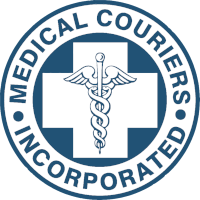Each year in the United States, productivity losses linked to absenteeism cost employers $225.8bn (CDC). The numbers are clear: when companies prioritize their employees’ health and wellness, employees get sick less and spend more time at work. It’s no surprise that when you feel good, you are more ready and often more willing to give time and attention to work. So what does this mean to the healthcare industry? How does providing health care for healthcare industry employees affect patient care?
Health improves the quality of healthcare
Distraction caused by pain or illness is a work hazard. In the healthcare industry, whether someone is testing a lab sample or picking up specimens to transport, focus can mean the difference between life or death. If healthcare industry employees show up to work feeling rested, nutritionally balanced, and exercised, they will be more available and focused on what needs to be done. And pain, fatigue, and stress-related symptoms can cause little mistakes that can have big consequences to patients.

Healthcare increases job longevity and performance
In the United States, receiving health care from your employer has become a kind of golden ticket. In fact, 56% of Americans said their health plan is the reason they’ve stayed at their current job (America’s Health Insurance). So how does this job longevity in healthcare industry jobs improve patient care?
First, continuity in work tends to improve work quality over time. Some of our medical couriers have been with us for over 20 years, and we work hard to instill a sense of patient responsibility in them—it’s the “no job is too small” ethic that guides us day to day. The care and quality of work our long-term team members demonstrate reflects who we are as a company. And this care directly affects the patients we serve.
In addition, when people spend more time at the same job, more meaningful workplace relationships develop. This camaraderie directly affects job satisfaction. Gallup found that close work friendships boost employee satisfaction by 50% and people with a best friend at work are seven times more likely to engage fully in their work.
Healthy relationships in the workplace make work more enjoyable, and for our medical couriers, the connections they have developed with hospital and lab staff can make going to work feel like visiting friends. And our clients want to know if their driver will be on holiday or is sick—their investment in the relationship goes beyond having a specimen picked up. For both the labs and the couriers, better relationships translate into better patient care.
Healthcare for healthcare industry employees creates empathy for patients
In the healthcare industry, perhaps the most positive outcome of providing employees health benefits is that they are more likely to empathize with the patients they are serving, positively affecting patient care. Empathy is hearing or recognizing the emotion behind what someone is saying, and it’s what allows us to put ourselves in their shoes.

Imagine a scenario in which a medical courier picks up a specimen from a hospital to transport it to a lab for testing. If that courier has visited a hospital recently for a similar test and had to wait for results, they’ll be more likely to empathize with the patient whose name is on the specimen bag even though they’ve never met them because they’ve had a similar experience.
This empathy translates to carefulness and increased attention in doing the job right. There is a “This could be me or someone I love” response that naturally makes us more attentive to the details that could save a life.
Providing health care for our drivers has improved the quality of the service we offer. It’s kept them with us longer, and has created a family atmosphere in the workplace that makes work more enjoyable. And because medical couriers play such a critical role on a patient’s road to health, helping them relate to the human beings behind the specimens they’re transporting is how we help them deliver excellent patient care.










